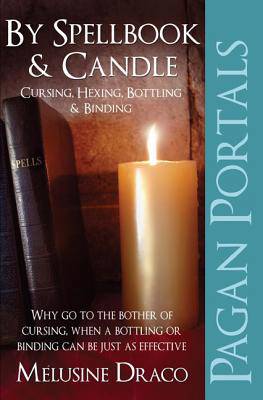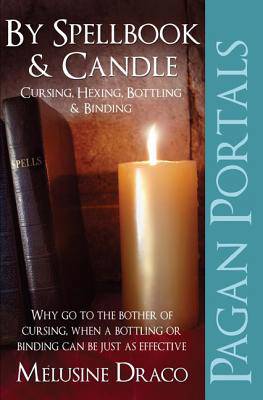
- Afhalen na 1 uur in een winkel met voorraad
- Gratis thuislevering in België vanaf € 30
- Ruim aanbod met 7 miljoen producten
- Afhalen na 1 uur in een winkel met voorraad
- Gratis thuislevering in België vanaf € 30
- Ruim aanbod met 7 miljoen producten
Zoeken
Pagan Portals - Spellbook & Candle
Cursing, Hexing, Bottling & Binding
Melusine Draco
Paperback | Engels
€ 14,95
+ 29 punten
Omschrijving
Curses have given the world some of its greatest legends and folklore, and the more grisly and gory, the better we like them. But cursing, or ill-wishing, is not a practice confined to magical practitioners - black, white or grey - it is a form of expression intended to do harm in reparation for some real or imagined insult and can be 'thrown' by anyone of any race, culture or creed without any prior experience of ritual magic or witchcraft. According to the dictionary, however, a curse is defined as: To invoke or wish evil upon; to afflict; to damn; to excommunicate; evil invoked on another person. If this is the clear definition, then under what circumstances can we challenge this established way of thinking and ask ourselves can cursing ever be justified? And if we hesitate for just a moment, then we must ask the next question: Is cursing evil? Like all aspects of life, however, it is advisable to put things in their proper perspective before passing judgement.
Specificaties
Betrokkenen
- Auteur(s):
- Uitgeverij:
Inhoud
- Aantal bladzijden:
- 96
- Taal:
- Engels
Eigenschappen
- Productcode (EAN):
- 9781780995632
- Verschijningsdatum:
- 16/10/2012
- Uitvoering:
- Paperback
- Formaat:
- Trade paperback (VS)
- Afmetingen:
- 137 mm x 211 mm
- Gewicht:
- 113 g

Alleen bij Standaard Boekhandel
+ 29 punten op je klantenkaart van Standaard Boekhandel
Beoordelingen
We publiceren alleen reviews die voldoen aan de voorwaarden voor reviews. Bekijk onze voorwaarden voor reviews.











